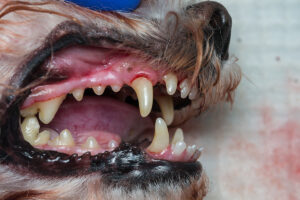
Maintaining dental health for pets goes beyond strong teeth—it promotes whole-body wellness.
When most pet owners think about keeping their dogs and cats healthy, they focus on food, exercise, and regular check-ups. But another crucial factor is dental health for pets. Just like in humans, oral hygiene directly affects more than just the mouth—it impacts the entire body. Ignoring your pet’s teeth can lead to far more than bad breath. It can contribute to infections, pain, and even serious conditions that affect major organs.
Why Dental Health Matters for Dogs and Cats
Plaque and tartar build-up aren’t just cosmetic problems. In dogs and cats, poor oral hygiene allows bacteria to multiply. Over time, this can lead to periodontal disease, a painful condition that affects the gums and the structures supporting the teeth. Left untreated, it can result in tooth loss, bone damage, and infections that spread through the bloodstream.
Healthy teeth and gums do more than protect your pet’s mouth—they support their overall well-being. A clean mouth means your dog or cat can chew comfortably, absorb nutrients properly, and avoid systemic health issues.
The Link Between Oral Health and Whole-Body Wellness
Bacteria from untreated dental disease can enter the bloodstream and travel to the heart, kidneys, and liver. This can lead to serious health problems such as:
- Heart disease: Oral bacteria can damage heart valves and increase the risk of heart infections.
- Kidney disease: Chronic oral inflammation can stress the kidneys and worsen existing conditions.
- Liver complications: The liver processes toxins, and bacteria from diseased gums can overwhelm it over time.
Maintaining dental health for pets isn’t just about fresh breath—it’s about reducing the risk of life-threatening illness.
Signs of Dental Problems in Pets
Since dogs and cats can’t tell us when something feels wrong, it’s important to watch for common signs of dental trouble:
- Bad breath that lingers
- Yellow or brown tartar buildup
- Red, swollen, or bleeding gums
- Dropping food or difficulty chewing
- Pawing at the mouth or reluctance to eat
If you notice these signs, it’s time to schedule a veterinary dental exam.
How to Care for Your Pet’s Teeth
Preventing dental disease starts with regular care at home and professional support. Here are some effective steps:
Brush Their Teeth
Daily brushing is the gold standard for pet dental health. Use a pet-safe toothbrush and toothpaste—never human toothpaste, which can be toxic.
Provide Dental Treats and Toys
Chews designed to reduce tartar can help, especially for dogs. Look for products approved by the Veterinary Oral Health Council (VOHC).
Regular Veterinary Cleanings
Even with good home care, dogs and cats need professional dental cleanings. Your veterinarian can remove tartar below the gumline and check for issues that aren’t visible at home.
Choose the Right Diet
Some pet foods are formulated to support oral health. Ask your vet whether a dental diet is appropriate for your pet.
Why Preventive Dental Care Saves Money and Stress
Investing in your pet’s oral care now can save on costly treatments later. Advanced periodontal disease often requires extractions, antibiotics, or even hospitalization. Preventive care keeps your pet comfortable, healthy, and happy while avoiding unnecessary expenses.
A Clean Mouth Leads to a Healthier Life
Prioritizing dental health for pets is one of the most important steps you can take to support your dog or cat’s long-term health. Clean teeth mean a healthier heart, stronger kidneys, and a better quality of life. Regular brushing, dental treats, and veterinary cleanings all add up to a brighter smile and a healthier body for your four-legged family member.
Trust Maryland Veterinary Surgical Services With Your Companion’s Health
Your companion’s health is important, and the team at MVSS is ready to provide the best care possible for your furry family. We are dedicated to combining comprehensive exams and assessments with informative and honest discussions of your companion’s care. Once we have worked with you to decide on the best course of action for your dog, our professionals will use their surgical expertise to work towards the goal of giving your companion an active and pain-free life. We are proud to serve loyal companions in Catonsville and Baltimore. To learn more about our services, give us a call at 410-788-4088 or visit us online. For more information and tips for dog health, follow us on Facebook and Pinterest.
